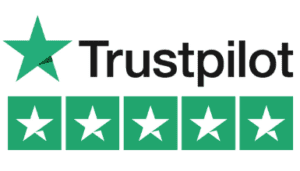

Top Tips For Your Next Nursery Interview
Share
Feeling nervous about your next nursery interview? Always remember that the interview is a two way process, you need to convince the interviewer(s) that you are the person for the job but they also need to convince you that they are the setting for you!
Here are some of our top tips to make the most of your next interview:
Decide what to wear
You should be smart and tidy. It’s likely that the interview will involve a practical element where you will be asked to stay and play in one of the rooms so pick an outfit that is both smart but also comfortable. Be sure to leave your high heels at home! Quite often settings will ask you to take your shoes off so check that you haven’t got any holes in your socks!
Gather together the documents and identification that you have been asked to bring
Do this as early as possible in case you can’t find a document. Keep the documents in a smart folder along with an updated copy of your CV. It’s always good to keep any written references you have in the folder too.
Research the nursery setting on the internet when applying for a nursery position
Does the setting have a website? Are they active on social media? You can find out a whole host of things such as what they have to offer and the different services that they provide. Do they have any other settings? Is there a newsletter that you can read to find out what the staff and children have been up to? If you are asked in your interview “What do you know about the setting?” you’ll be armed with some information to respond with. It’s also a good idea to read their most recent Ofsted report.
Location and punctuality
Make sure that you know exactly where the setting is. It’s sensible to check out the parking situation and to do a quick trial run in the days leading up to the interview if you can. Give yourself plenty of time to get there to allow for any hold ups. Ideally you should arrive around 10 minutes before your interview time.
It’s best to allow a couple of hours to ensure that you don’t have to rush back to work or to do the school pick up, etc. in case the interview over runs or the interview starts late or is interrupted due to the unpredictability of children.
Pre-empt the questions that you might be asked
What will your answer be if you are asked “Why are you leaving your current role?” Even if you are unhappy in your job, you think your employer is terrible and you could do a better job with your eyes shut, never speak negatively about a current or previous employer as this can come across as unprofessional. Do you know the seven areas of the EYFS? Practice these questions beforehand so you can come prepared.
Take along some questions to ask
This shows that you are interested, and like we shared earlier, interviews are a two way process. Take advantage of the opportunity to ask questions too. Would you like to know what training or promotion opportunities the setting has, for example?
Name of interviewer(s) and telephone number of the setting
Make sure that you know who you will be meeting with and who to ask for when you arrive. Store the telephone number of the setting on your phone in case you are delayed.
It’s the day of the interview! Remember:
- Arrive on time, this firstly shows that you are reliable and professional but also helps keep nerves at bay as you won’t have rushed and arrived in a fluster.
- Once you arrive at the setting remember to turn off your mobile phone. The last thing you want is a cheesy ringtone playing right in the middle of your interview!
- First impressions count! The initial few moments meeting someone who could decide the course of your career are important and can really set the tone for the rest of the interview.
- Smile and greet the person interviewing you with something like “Thank you for inviting me to meet you today.” Handshaking is considered polite but given that we are only just coming out of a pandemic it is best to ask the interviewer(s) if they are happy to do so first as this shows consideration for them.
- Keep calm – Interviews are nerve wracking for most people but again, remember that they are a two way process and you are not just there to impress, you are also there to be impressed! The main reason people feel uncomfortable during interviews is the fear of being asked a question that they might struggle to answer. In this situation, be honest and explain that you don’t know the answer but you would like to find this out and would welcome training.
- Maintain eye contact – It will show that you are engaged and genuinely interested.
- Never give just yes or no answers as this could give the impression that you are not fully interested or engaged. By just answering “yes” or “no”, you leave the interviewer with very limited information to help them decide if you are the person for the job.
- Ask questions too – Don’t be afraid to get your list out. You might find that the questions you prepared have already been answered during the interview, but if not do grab the opportunity to ask questions too.
- Don’t be shy to discuss the salary being offered, after all we all work to earn money to live so this is very important. You need to be able to establish if you will be able to gain the salary that you need if you are successful.
- Stay and play – Most settings will ask you to work in a room for a short period so that you can get a feel for the nursery and they can see how you interact with both the children and the staff. Don’t forget to show an interest in the staff as well as the children. Ask them questions too.
- Thank the interviewer(s) – At the end of the interview thank them for their time.
Lastly, remember that not everyone gets selected for an interview and you did well to be shortlisted. If you are unsuccessful don’t dwell on it. The energy used to beat yourself up about stumbling on a question is better spent on applying for the next role. Very often an even better opportunity comes along!









